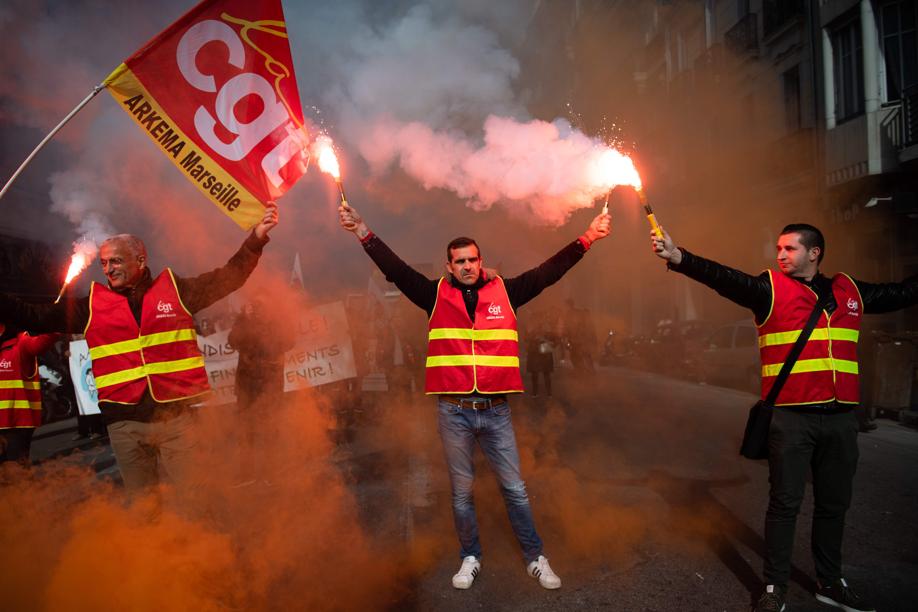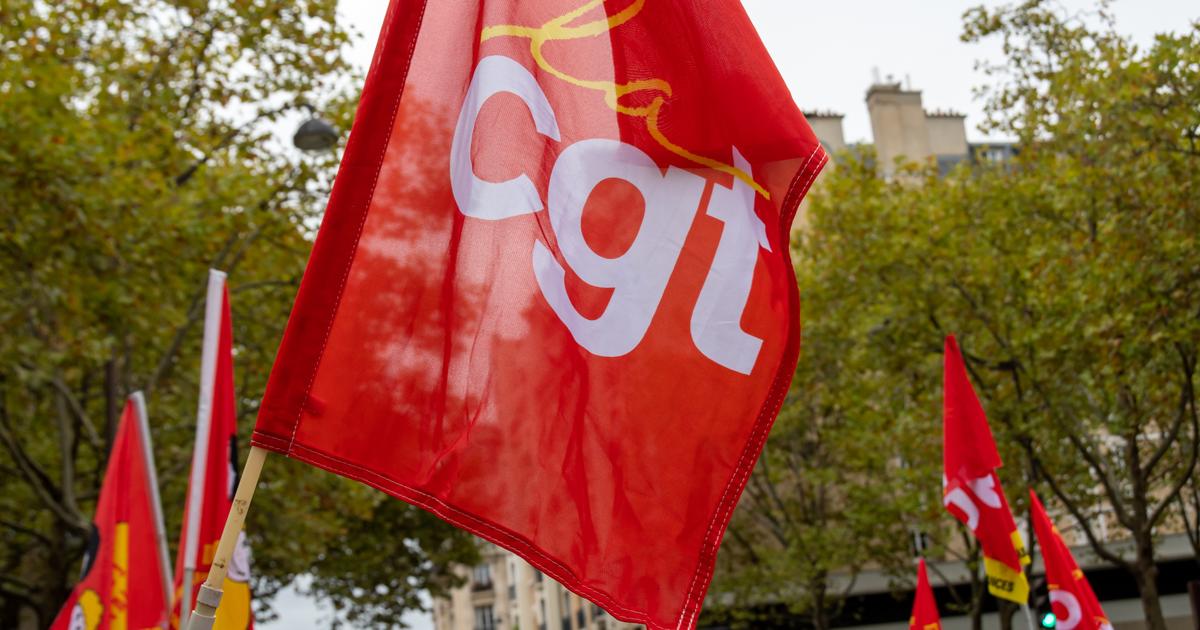After a lull of a few weeks, will the strike in transport resume at the RATP and the SNCF? In recent days, several central have called to resume mobilization from next Monday, on the occasion of the arrival of the pension reform project in public session in the National Assembly. Enough to raise fears of a return of the galleys in Ile-de-France transport.
Read also: Pensions: a busy week ahead despite the stagnation of the debate in the Assembly
Last Thursday, the Unsa-RATP opened the ball by calling for a “ black Monday in transport ” on February 17: the union “ organizes and continues the fight against this unfair retirement reform ”, he wrote in a press release . The organization therefore intends to resume its fight against government projects, after a break of almost a month, announced on January 18. At the time, the first trade union organization at the RATP had explained that it wanted to " engage in another form of action ". She also warned those who would rejoice too quickly at this decision: "as soon as the colleagues are ready, we set off again, hoping for a convergence of struggles ", had promised its secretary general, Laurent Djebali.
The next day, Unsa-RATP (30.19% of the votes cast in the last professional elections, in 2018) had been joined by Sud-RATP (8.95% of the votes), FO-RATP (6.86%) and Solidaires RATP (3.27%). In a joint statement, the four organizations reiterated their " firm and determined opposition to the establishment of the pension system by points ". They supported the initial call for a dark day Monday, February 17, and advised opponents to participate in the next national mobilization day, scheduled three days later. For now, the CGT has not commented on its possible participation in the movement of 17.
Call for a " dead day " in transport all over France
However, on Monday, these calls took on a different dimension, no longer exclusively from the Paris region, but from a national scale, when the railway workers 'branch of the workers' force called for a " dead day " in transport next week. Fifth union at SNCF (7.63% of the vote, and representing around 10% of drivers), FO-Cheminots " will do everything to extend this day of appeal to other federations and railway structures and reproduce the strength of strike which started on December 5, 2019 ”. On Facebook, the union published a press release stressing that " the tool for the victory is indeed the strike, all together, to block the economy ". He again advises the government to immediately withdraw its " pension reform reform ".
Read also: Why the strike is harder at RATP than at SNCF
Opponents of the reform therefore hope to see the social movement start again, after more than two months of mobilization. The challenge is significant: the rates of strikers have melted in the various organizations, and the strike has not taken root in the private sector. In addition, the processions of demonstrators lost force over the weeks, going from 806,000 participants throughout France, according to the Interior, on December 5 - and 1.5 million according to the CGT -, to 452,000 on January 9 and 249,000 on January 24. They have since not exceeded the 125,000 participants mark. Their mobilization in the streets and businesses is complemented by another, in the corridors of the National Assembly, where political groups scramble over the text of the bill.
The prospect of a return to the SNCF strike should cringe. In mid-January, the boss of the group, Jean-Pierre Farandou, announced that the strike should cost " not far from a billion " euros in losses for his business. An " economic plan " should be quickly put in place to restore balance in the accounts, he added, adding that it " would not affect employment in the field ". This prospect had however made roar certain trade unions, which had immediately denounced a “ pretext ” used by the direction to justify its plan of savings already in the pipes. " We cannot stay in the mood for the strike and the work stoppage all the time ," replied Farandou, calling on the strikers to join a " shared future " for all of the group's employees.
Read also: Pensions: should unions fear a slingshot in their ranks?







